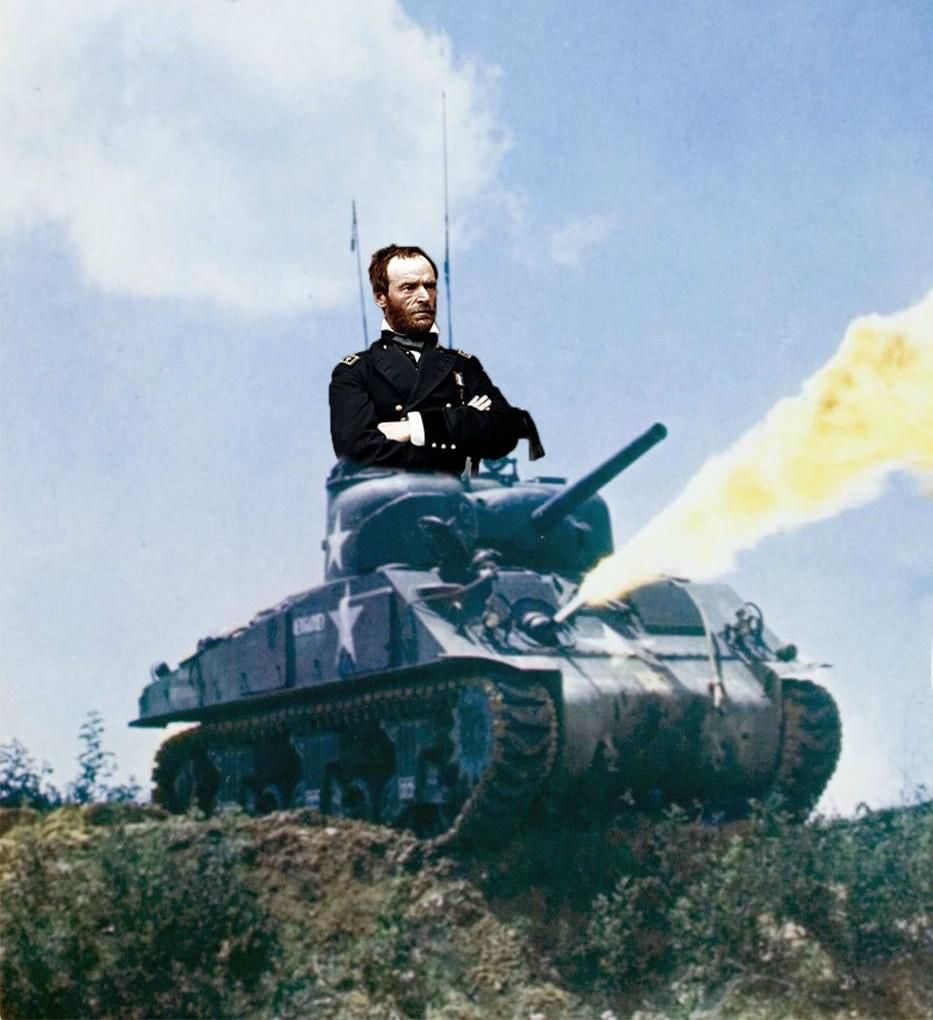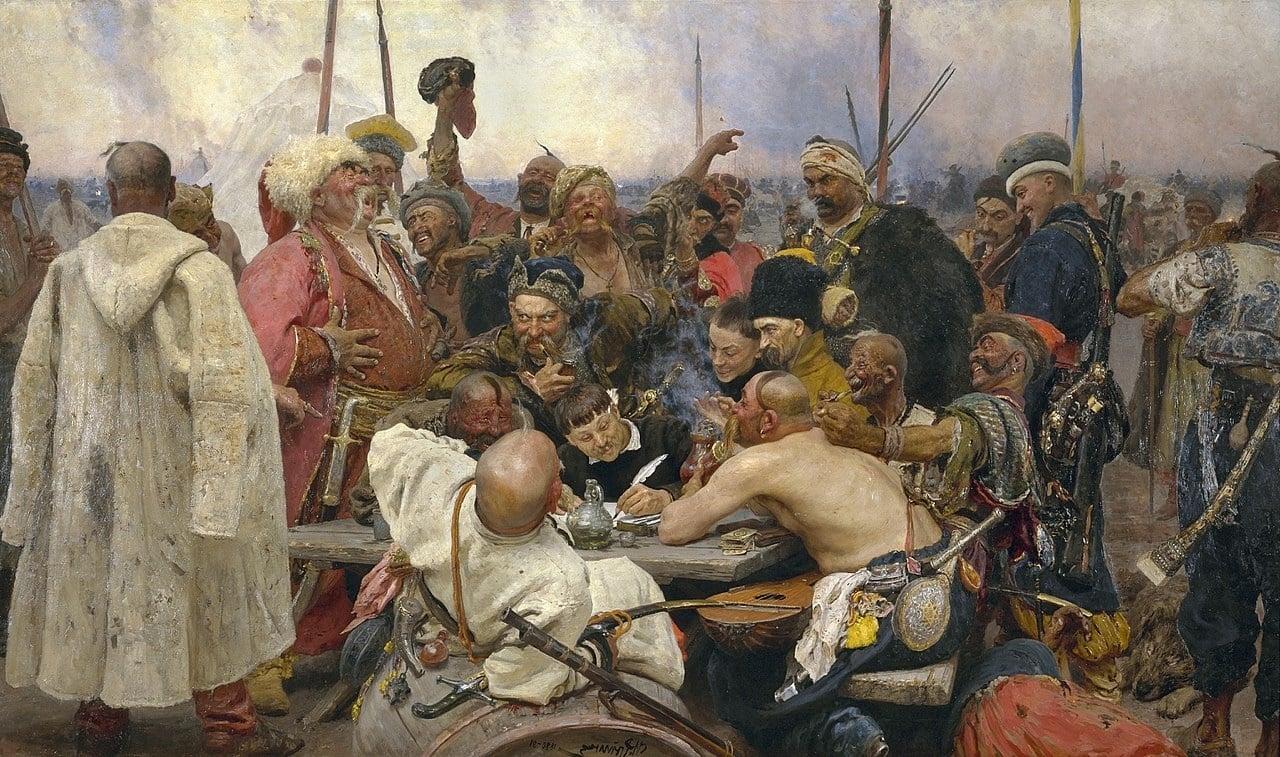yeah it was that black and white.
If any war ever was…
I don’t think when you’re talking to intellectually dishonest racists that you need to entertain the idea they are arguing in good faith about the primary motivation for the civil war. The point is that they’re mad racists and it’s fun to rile them up about a conflict the south started and then lost.
True enough
I love the ones that have built up an entire fake history in their minds, watching them get slammed by facts, dates and honest history just fucks their entire world up and I’m here for it.
Yes, it was a complex war, and worthy of study.
No, the South wasn’t fighting for (much of) anything more than keeping slavery. You are free to read the letters of succession that every state sent Congress and see for yourself, draw your own conclusions. My take away is that slavery was clearly the top concern, but they had other gripes as well.
No, the North wasn’t fighting so much for the rights of blacks. The North was hardly the “good guys” regarding that, but it’s damned fortuitous they won or we would have been split and weakened.
What happened after the war is perhaps more interesting than the casus belli.
If you know nothing about the civil war, you know it was about slavery.
If you know a little about the civil war you know it was abouts states rights.
If you know a lot about the civil war, you know it was about slavery.
it was about states rights to have slavery.
Great comment, thank you. Too many people do not really understand how it was on either side.
The war of southern white traitors failure to consider the very basics of supply and logistics that resulted the ruthless savagery being struck from the land by a cleansing march of fire to the sea?
The backstreet boys lasted longer than the confederacy.
The Backstreet Boys are still touring.
I fucking dare you to tell me why
Ain’t nothin but a heartache, after all.
I wish :/
That’s Stevie Wonder. Very different.
Fuck you now I’m going to be humming that baseline all day
Why? I wanna know when and where!
It’s almost harder to find things that didn’t make it as long as the confederacy. Things like beanie babies, fruit stripe gum, slap bracelets, the tamagotchi, and New Coke all outlasted it.
deleted by creator
Ive called it the “Slaveholders Rebellion” because that’s what it was all about 🫡
DuBois also described Northern Liberals like this:
they say, I know an excellent colored man in my town; or, I fought at Mechanicsville; or, Do not these Southern outrages make your blood boil?
https://www.gutenberg.org/cache/epub/408/pg408-images.html
They’re just pretending to have hated slavery all along. The South fought for slavery but the North didn’t fight against it. The North fought because they wanted to “preserve the Union”. They didn’t really care about slavery, or black people.
They’re just pretending to have hated slavery all along.
You do realize that the abolitionist movement was a huge part of the Union war effort?
Abolitionists supported the war because it was the most expedient path to end the practice of slavery. That being said, Lincoln didn’t initially set out to abolish slavery. When he was campaigning for president, his goal was to halt the expansion of slavery in the Union, admitting no more slave states; he had no intention of outlawing slavery in existing slave states. In fact, when General Fremont issued an order that would emancipate the slaves of “disloyal” citizens in Missouri (which did not secede), Lincoln immediately countermanded that order. When he pushed for the emancipation proclamation a year later, his intention was not to free slaves, but rather to create chaos behind enemy lines. All slave-holding states that remained in the union were specifically exempted in its language.
And it’s not like he was super anti-slavery in his personal views, either. He didn’t like it, certainly, but he wasn’t above using it to his advantage. When the first black people escaped from slave states after the outset of war, Lincoln decreed that they should be treated as “spoils of war”, and used in the fight against the South. He did not give them a choice in the matter. In essence, though they had escaped to what was supposedly a “free” state, they just ended up exchanging one master for another. To Lincoln’s mind, slavery was a natural consequence of black people and white people sharing the country; his solution was to ship all of the black people in the US over to Liberia.
And it’s not like he was the only person with governmental authority in the Union who had laissez faire attitudes towards slavery. The original proposed 13th amendment, which saw wide bipartisan support in congress, would have prevented Congress from making any laws concerning the abolishment of slavery:
No amendment shall be made to the Constitution which will authorize or give to Congress the power to abolish or interfere, within any State, with the domestic institutions thereof, including that of persons held to labor or service by the laws of said State.
This proposed amendment was sent to the states, but narrowly missed the threshold for ratification.
So yeah; the abolitionists supported the war effort, but to be fair, it was really the only game in town. The union was only anti-slavery as a last resort, as a way to remove the economic incentive for Southern states to secede again.
Edit: just wanted to point out that only some of the abolitionists supported the war. A significant faction of the abolitionists were the quakers, who were vehemently against war.
To Lincoln’s mind, slavery was a natural consequence of black people and white people sharing the country; his solution was to ship all of the black people in the US over to Liberia.
The colonization idea was widely supported at the time, including by prominent free African-Americans. Furthermore, Lincoln’s ideas are greatly shaped not only by the changing conditions of the US, but also by his residency in DC during the presidency, during which he became exposed to more African-Americans than he had before. One of his final speeches was advocating for suffrage for freedmen, for Christ’s sake. The man was racist in a manner not uncommon to his time, but hardly to the degree claimed - that slavery was a natural consequence of a mixed nation.
No amendment shall be made to the Constitution which will authorize or give to Congress the power to abolish or interfere, within any State, with the domestic institutions thereof, including that of persons held to labor or service by the laws of said State.
The Corwin Amendment was a desperate Hail Mary on the eve of the Civil War to try to prevent secession and what the North realized (but the South did not) would be a brutal and bloody war. It failed.
So yeah; the abolitionists supported the war effort, but to be fair, it was really the only game in town. The union was only anti-slavery as a last resort, as a way to remove the economic incentive for Southern states to secede again.
More than that - the Union had become radicalized by the failure of the ‘peaceful’ attempts to contain slavery, by the blatantly traitorous behavior of the South, and by the conditions seen by Union soldiers and government workers in the South, many of whom had not been to slave-holding states before, and certainly most not in a condition where slaves could attest to their own conditions without a watchful eye and ear over them.
The Republican Party itself was quite explicitly an anti-slavery party - the only question was whether it was acceptable to allow it to die out (as Lincoln and the Moderates argued) or if it should be stamped out immediately (as the Radicals argued).
The man was racist in a manner not uncommon to his time, but hardly to the degree claimed - that slavery was a natural consequence of a mixed nation.
I agree with you that his views evolved over time, but your assertion that he did not at one point live up to the degree of racism that I claimed doesn’t mesh very well with this quote from his debate with Stephen Douglas in 1858:
I am not, nor ever have been, in favor of bringing about in any way the social and political equality of the white and black races … I am not nor ever have been in favor of making voters or jurors of Negroes, nor of qualifying them to hold office, nor to intermarry with white people; and I will say in addition to this that there is a physical difference between the white and black races which I believe will forever forbid the two races from living together on terms of social and political equality. And inasmuch as they cannot so live, while they do remain together there must be a position of superior and inferior, and I as much as any other man am in favor of having the superior position assigned to the white race.
At his White House meeting with black thought leaders in 1862, he said:
Your race suffer from living among us, while ours suffer from your presence… It is better for us both, therefore, to be separated
This certainly indicates that he still saw an inequality and animosity between black and white people. And while he did eventually come to agree with those who vehemently opposed resettlement of black people, it was really only after the spectacular failure of Île à Vache (a colony off the coast of Haiti) in 1863-64 that he abandoned his original position.
This certainly indicates that he still saw an inequality and animosity between black and white people.
Which, on its own, is still very far from saying slavery was a natural consequence.
But… It wasn’t on its own. Did you not see the quote directly above it??
Yes, I saw it, that still doesn’t saw he’s in favor of slavery.
And your source for that is? Abolitionists were inherently secretive, due to the nature of their work freeing slaves. It’s impossible to know their exact numbers, as no one would admit to it even after the war.
So any source you might find is just guessing as to their numbers.
Abolitionists were inherently secretive
Abolitionists openly operated papers in the North. They were a major part of the Republican Party at the time, especially amongst the so-called Radical Republicans.
as no one would admit to it even after the war.
… many literally did admit to it after the war. Many admitted to it during the war.
So no source for their numbers? I have DuBois’s own words saying people in the North didn’t care about black people. Where’s your proof?
I have DuBois’s own words saying people in the North didn’t care about black people. Where’s your proof?
You have Dubois saying
they say, I know an excellent colored man in my town; or, I fought at Mechanicsville; or, Do not these Southern outrages make your blood boil?
in reference to how even polite Northerners still saw African-Americans in terms of being an ‘issue’ that needed to be addressed, even if they phrased it positively. He was not seen as a ‘fellow American’, but still othered, even if in an innocently insensitive way.
For those curious, this is a more full quote:
Between me and the other world there is ever an unasked question: unasked by some through feelings of delicacy; by others through the difficulty of rightly framing it. All, nevertheless, flutter round it. They approach me in a half-hesitant sort of way, eye me curiously or compassionately, and then, instead of saying directly, How does it feel to be a problem? they say, I know an excellent colored man in my town; or, I fought at Mechanicsville; or, Do not these Southern outrages make your blood boil? At these I smile, or am interested, or reduce the boiling to a simmer, as the occasion may require. To the real question, How does it feel to be a problem? I answer seldom a word.
So no source for their numbers?
Radical Republicans made up the majority of the Republican majority by 1864 in the Civil War. That would mandate a plurality of voters in at least a quarter of the nation’s electoral districts. Arguably, they made up an outright majority of Congress, which would mandate a plurality of voters in at least half of the nation’s electoral districts.
Abolitionists were inherently secretive, due to the nature of their work freeing slaves
You seem to be confusing the abolitionist movement, which involved public meetings and newspapers, with the “conductors” of the underground railroad, who were mostly free African-Americans who risked being enslaved by slave catchers (even if they had never been enslaved in their lives.)
They were the same people. And no, I meant the white abolitionists. They lived publicly in the North and South, but didn’t reveal their identities.
https://www.historynet.com/how-many-abolitionists-were-there/
John Brown and Bleeding Kansas have entered the chat…
The fact that in 2024 anyone at all can look at the American Civil War and be like “um Akshully it’s really the North’s fault! It was about our heritage!” is pathetic. And racist.
So the North invaded the south to, literally, stop slavery, stop the south from breaking away from the United States to become a slaver state because the USA wanted to abolish slavery, and your response is that “well the North wasn’t woke enough, and means all the southern racists and slavers got a bad rap.”
Get your head examined.
Ok. I’m not a Confederate defender at all. Check my comment history if you want some context on my politics.
But you’re wrong about the North fighting to stop slavery. The North fought the war to keep the Union together. The Secessionists tried to leave because they wanted to enforce slavery everywhere. There were new states joining the Union, and the secessionists didn’t like that they were given the option to choose whether or not to keep slavery legal. The Secessionists didn’t like that northern states like Wisconsin and Vermont were freeing escaped slaves rather than returning them per federal law.
So the South was fighting for slavery.
And the South was fighting against state’s rights. That’s a thing most people get backwards. The only state’s right the secessionists were fighting for was the right for states to secede.
But the North wasn’t fighting to stop slavery. Lincoln gave speeches in support of abolition, but his presidential campaign was explicit in his intent to keep the status quo and let new states decide for themselves. The emancipation proclamation was two years into the war, and it was many years after the war had ended when all the slaves were eventually freed.
That doesn’t mean that the North was fighting to keep slavery. It’s just that the political climate was complicated, and there were a lot of Northern slave owners that Lincoln needed to placate. It doesn’t make Lincoln a bad guy, or tarnish his legacy. He did indeed win the war and free the slaves, and he was murdered for his efforts.
The North never accepted the concept that the Confederate States weren’t still part of the USA, so it also wouldn’t be accurate to say the North “invaded” the South at all. We should be precise in our language.
Slaver terrorists attempted a rebellion because they wanted slavery in all American territories, and were afraid they would eventually be prohibited from keeping slaves. American soldiers put down the rebellion and kept the Union intact. This also helped abolitionists to gain enough political ground and popular support to eventually free the slaves.
the history of the united states is so fascinating. thank you for this comment. also i hope the head examination went well 😂 if you took up 4am’s offer
I appreciate your historical accuracy in the face of people who don’t care about any level of discourse beyond ‘South bad North good end of subject’. Being accurate about the nuances of the war and its causes is not the same as defending the Confederacy
Who fired the first shots?
South Carolina










